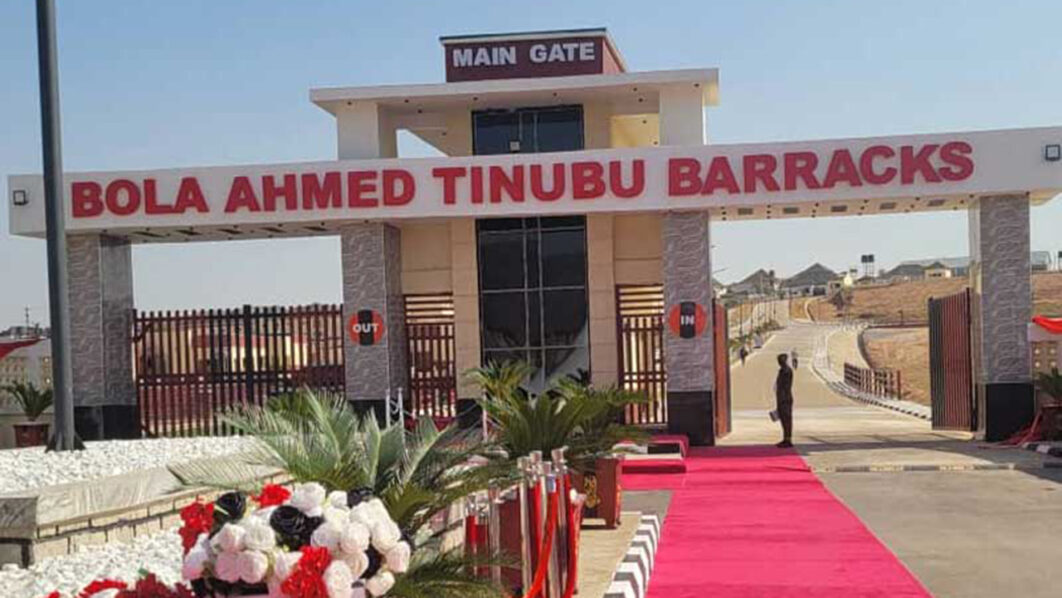
Across Nigeria, a concerning trend has taken root—public infrastructure funded by taxpayers is increasingly being named after serving politicians or their close associates. The move, often cloaked in the rhetoric of recognition and honour, is raising questions about governance ethics, public accountability, and the erosion of democratic values.
One such instance is the naming of a hall of residence at the University of Lagos after Femi Gbajabiamila, facilitated during his tenure as Speaker of the House of Representatives. Although the structure was erected with public funds under a constituency project, it now bears the name of the lawmaker.
Read Also “Lagos Gyms Evolve into Unofficial Social Hubs Amid Fitness Craze”
The pattern is not isolated. In Borno State, a 500-unit housing estate in Maiduguri completed in December 2024 was named by Governor Babagana Zulum after Yobe State Governor Mai Mala Buni. Similarly, former Vice President Yemi Osinbajo had a learning centre in Maiduguri named after him while still in office, despite the project being under the North East Children’s Trust.
In Ebonyi, David Umahi, as governor, presided over the naming of a university and an international market after himself. His successor at the Ministry of Works has not distanced himself from the legacy. Likewise, Akwa Ibom’s former governor Udom Emmanuel saw a 21-storey building named Udom Emmanuel Towers—an initiative of his administration—rebranded under his successor, Umo Eno.
The practice is not limited to state leaders. At the federal level, President Bola Ahmed Tinubu, within less than two years in office, already has multiple publicly funded projects named after him—including a newly constructed military barracks in Abuja. Some councils have extended this privilege to his wife, naming public health facilities after First Lady Remi Tinubu.
Read Also “Democracy Has Failed to Deliver Development — Burkina President Faso’s Traoré”
Former President Muhammadu Buhari also benefited from this trend, with numerous state facilities—like the airport in Ebonyi—renamed in his honour while still in office.
Although naming public infrastructure after revered leaders is not new, especially to honour exceptional service, the current trajectory departs from tradition. Historically, infrastructure naming was a posthumous recognition reserved for individuals whose contributions were profound and indisputable. Universities like Obafemi Awolowo University and Ahmadu Bello University stand as examples, reflecting the stature of the individuals they commemorate.
But the modern approach reflects a shift toward institutionalising political egos rather than celebrating merit. Critics argue that the naming of projects after serving politicians lacks moral justification and undermines the integrity of public office.
Gbenro Olajuyigbe, Executive Director of Emergency and Risk Alert, condemned the trend as symptomatic of a governance structure plagued by impunity. “It’s no longer about shared governance, but about rulers and the ruled,” he said. “Public assets have become extensions of personal empires.”
He warned that by glorifying politicians who may not have delivered meaningful service, society is perpetuating a culture void of accountability. “Naming national treasures after those with questionable records dilutes our ethical foundation and misguides future generations,” he added.
Public affairs analyst Bukola Bassey shared similar concerns, stating that the trend reflects lowered public expectations. “Building roads, bridges, and schools with public funds should be a standard duty—not a favour worthy of enshrinement,” she said. “When state-funded projects become tools for self-advertisement, it shows how much we’ve normalised mediocrity.”
Bassey pointed to global examples where monuments were toppled for symbolic reasons, expressing hope that history will eventually judge rightly.
Auwal Ibrahim Musa (Rafsanjani), Executive Director of the Civil Society Legislative Advocacy Centre (CISLAC), described the practice as a deviation from the principles of service and humility. “The current administration is accelerating this unfortunate culture, with no regard for the morality of such honours,” he said.
He emphasized that recognition should come from successors or communities, not self-conferred while still in power. “This self-glorifying culture promotes sycophancy and undermines democratic institutions,” Musa said.
He also warned of its long-term dangers: “If not checked, future administrations will adopt the same behavior, leading to entrenched political favoritism and weakened institutional credibility.”
Musa noted that many appointees now see naming projects after the president as a way to secure political favor. “It’s no longer about service delivery—it’s about patronage,” he said. “Without clear legal boundaries, the moral compass of leadership becomes the only restraint—and that, sadly, is in short supply.”
Psychologist Mathew Adebola provided insight into the personal motivations behind such behavior, explaining that politicians often seek legacy and recognition. “This act of naming is a form of psychological imprinting, a quest to leave behind a mark, even if undeserved,” he said. “But when this desire overshadows public good, it reflects an ego-driven mindset.”
As Nigeria grapples with myriad developmental challenges, the glorification of leaders through public monuments may seem trivial. Yet, the implications are far-reaching. It redefines leadership standards, reshapes public values, and potentially alienates the citizenry from governance.
While the law may not prohibit this practice, the court of public conscience—and the judgment of history—may ultimately determine whether these leaders will be remembered for their service or their self-celebration.
source: https://guardian.ng/features/public-assets-or-personal-monuments-why-politicians-should-stop-naming-projects-after-themselves-cronies/



